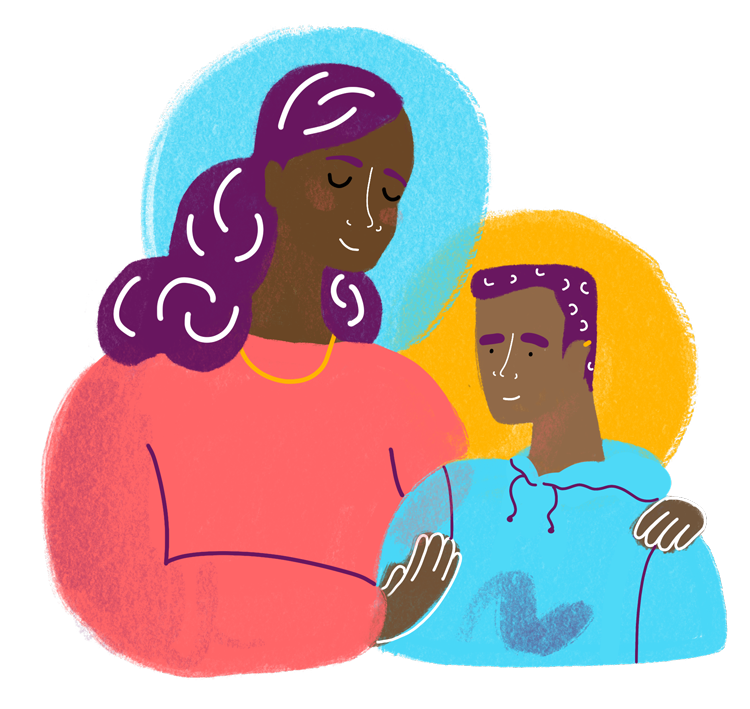Access to notes allows families to manage care across various organizations and helps children become more engaged in their own health.


Access to notes allows families to manage care across various organizations and helps children become more engaged in their own health.
See also Sharing Notes with Adolescents
Benefits include:
Remembering what was said during the visit. There’s ample evidence that patients and families often forget what was said during a medical encounter. Reviewing the record and the notes can help everyone understand the treatment plan and next steps.
“My husband calls me the ‘Chief Operating Officer’ of our family. With three kids, each with different schedules and different health concerns, access to notes is a tremendously valuable tool to help us manage our health.”
— Betsy
Communicating concerns. Reviewing notes gives parents, patients, and care partners an opportunity to identify possible inaccuracies, such as details about medication changes, new allergies, family history, or other information that may be useful to clinicians. It also prompts patients and families to communicate with care teams if there's a lack of understanding about the care plan or difficulty following the recommended next steps.
“Shared, ubiquitous, consent-modulated access to medical information promises reduced medical errors, improved efficiency, and safety of medical care, and lower health care costs, as well as activated patients who take responsibility and become partners in managing their own health care.”
— Bourgeois, et al. “Whose Personal Control? Creating Private, Personally Controlled Health Records for Pediatric and Adolescent Patients.” JAMIA, 2008.
Sharing notes. Schools often ask parents to fill out a health form at the beginning of each year. It might include a vaccination record or a description of how a child’s asthma is managed. Accessing the child’s medical record, including the visit notes, can help with recall of important details. It also allows the parent or care partner to share portions of the notes with the school nurse, another health specialist, or anyone they choose to give a more detailed and accurate description of a condition or treatment plan.
Learning to navigate the health system. Open notes can help parents empower their children to feel more in control of their health care, especially if they have complex health issues. Reading notes can also help patients and families develop skills to become more informed users of health systems in the future.
The value of OpenNotes for pediatric patients, their families and impact on the patient-physician relationship | Appl Clin Inform (2021)
OpenNotes: Sharing visit notes with patients and families | Pediatric Nursing (2018)
Generally, yes. Clinicians are required to share pediatric notes that are part of a patient’s health record. As of April 5, 2021, all U.S. health care systems are required to electronically share clinicians’ visit notes with patients upon request at no charge. This is required as part of the 21st Century Cures Act program rule on Interoperability, Information Blocking & ONC Health IT Certification.
The 21st century Cures Act in pediatric gastroenterology: Problems, solutions, and preliminary guidance | J Pediatr Gastroenterol Nutr (2021)
It depends on your state’s laws and your patient portal access policies. Parents typically can access visit notes for their minor children, though some organizations limit access to notes for parents once the child becomes an adolescent. Adolescents can also have access to their own notes. They may independently seek “confidential” services, typically related to reproductive health, mental health, and substance use. Notes from these visits cannot be shared with a parent. Laws defining these types of health care services differ from state to state. If appointed as a medical guardian for patients age 18 or older, parents retain access to the patient’s record after obtaining the appropriate court documents.
For more information about adolescent notes, see “Sharing Notes with Adolescents”.
OpenNotes: Sharing visit notes with patients and families | Pediatric Nursing (2018)
Most often they both have access to the patient portal. However, a parent may choose to share information privately with a health care professional and request confidentiality from the other parent or the patient. In these cases, clinicians are asked to consider this information sensitive and/or confidential. Such information, however, may not be suppressed in response to formal requests for a copy of the official medical record.
Ethical challenges raised by OpenNotes for pediatric and adolescent patients | Pediatrics (2018)
If the biological parents have lost custody of the patient, then most likely they will not have access to the child’s account. Some social workers working for certified agencies can register for a patient portal account as the legal guardian. If proper court documents are provided, access can be granted.
Ethical challenges raised by OpenNotes for pediatric and adolescent patients | Pediatrics (2018)
Ideally, your institution has implemented notifications. For example, some health systems send alerts via secure messaging, texts or mobile app notifications that allow patients and families learn when a note has been finalized and is available for review.
![]() Except where otherwise noted, the content by OpenNotes is licensed under a Creative Commons Attribution 4.0 International License.
Except where otherwise noted, the content by OpenNotes is licensed under a Creative Commons Attribution 4.0 International License.
NEW WEBINAR
Getting It Write: What To Do Now That Patients in England Can Read Their GP Notes
Tuesday, November 1, 2022 | 8am Pacific Standard Time (PST)
11am Eastern Standard Time (EST) / 3pm Greenwich Mean Time (GMT)
While open notes have been the “law of the land” in the United States for more than a year, in England, adult patients accessing care through the National Health Service (NHS) will have access to their primary care record online for the first time starting Nov. 1, 2022.
In this webinar, we’ll be joined by open notes experts and discuss what this change means for patients and general practitioner (GP) staff in England.


